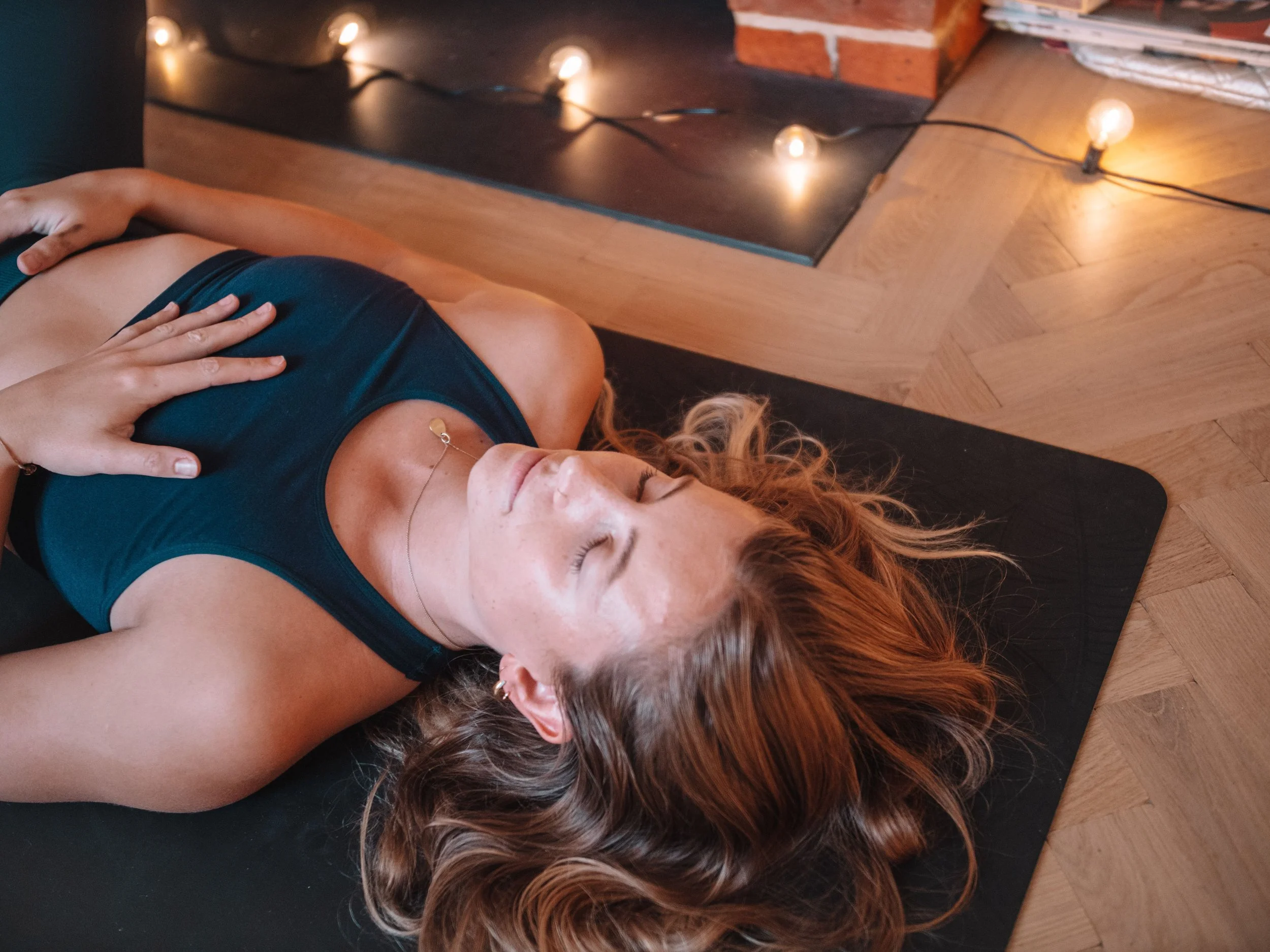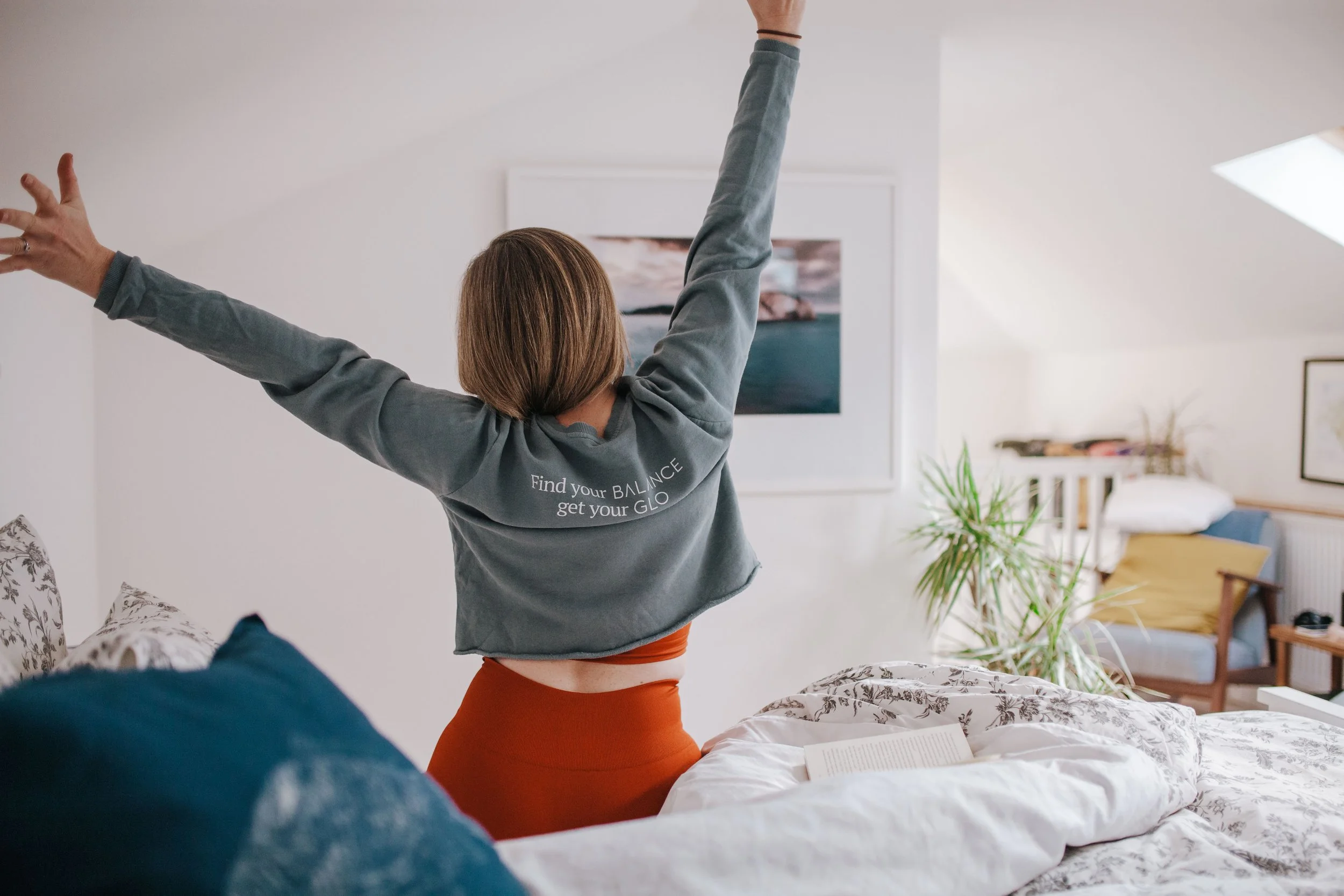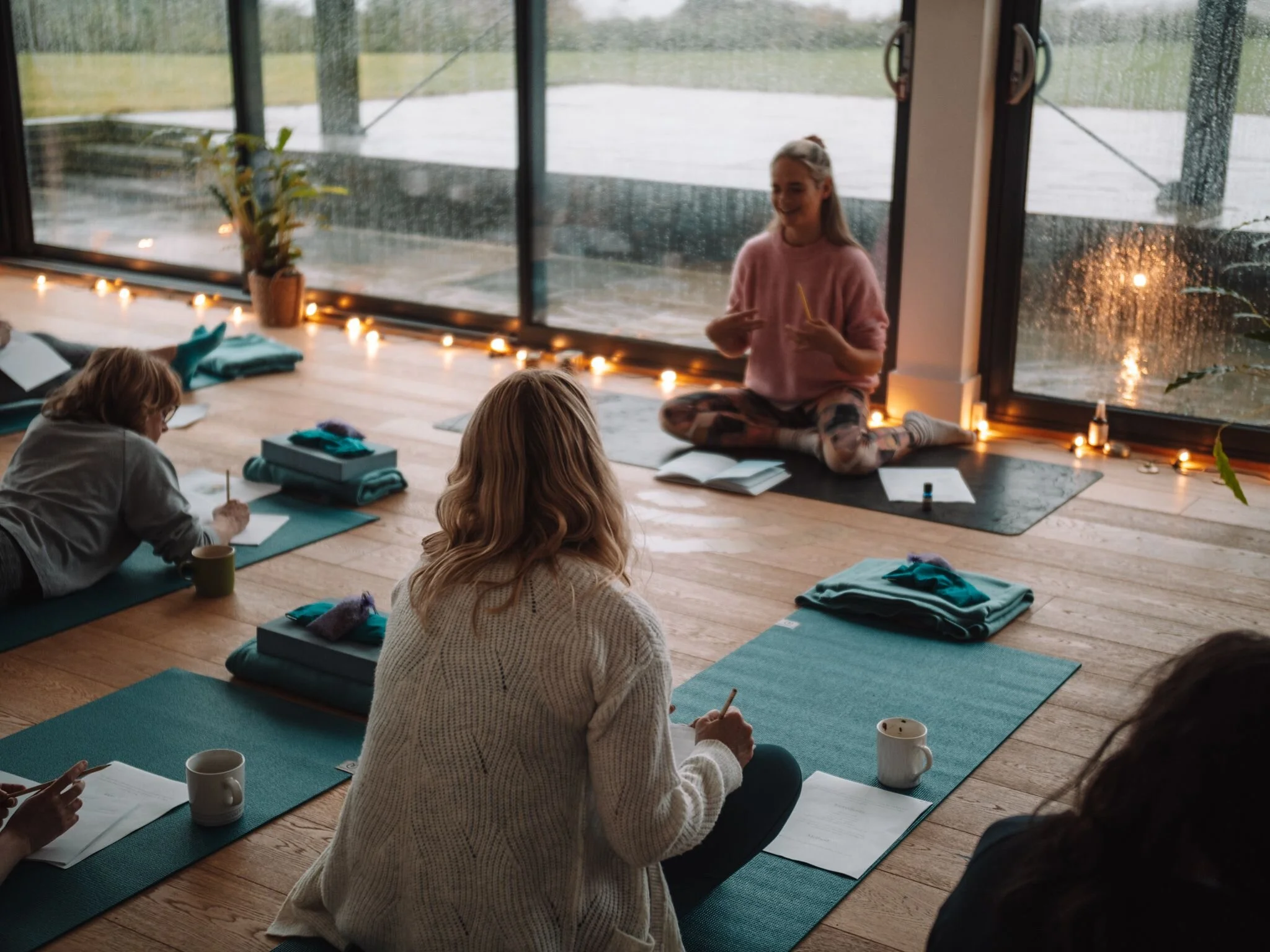6 WAYS TO BREAK THE SLEEP - STRESS CYCLE
Do you find it hard to fall asleep when you feel stressed and do you feel more stress when you’ve had less sleep? There’s no doubt that we’ve all likely experienced both, so you’re right in thinking that stress and sleep have a reciprocal relationship!
High levels of stress can contribute to trouble sleeping, and poor-quality or insufficient sleep can contribute to increased stress levels. Cortisol, which increases sugars in the blood stream, curbs functions that would have a negative effect on the fight or flight response (our stress response). It alters immune system responses and suppresses the digestive system, the reproductive system and growth processes. It usually decreases at night in preparation for sleep, however studies have found that those that struggle with sleep have higher levels. Not getting enough sleep also has a significant impact on stress levels and overall mood. Research suggests that people who have slept better also experience less negative emotions and can recover faster from a stressful event.
So how can we break the Sleep — Stress Cycle? There are many ways we can create a better sleeping environment to reduce stress and therefore support us in sleeping well and feeling better. Discover our top 6 ideas below…
1. Avoid Caffeine Later in the Day
Caffeine consumption can make it harder to fall asleep, even when taken a full six hours before bedtime. Try to limit your intake to the morning and early afternoon to avoid that 'buzz’ in the afternoon or early evening.
There are many alternatives that will provide you with a calming effect on body and mind. Why not try our expert nutritionist Lou’s Golden Turmeric Milk Latte or our favourite Pukka Nighttime Teas infused with sleep inducing Lavender and Camomile.
2. Reduce Exposure to Screens
Exposure to blue light in the hours leading up to bedtime can hinder sleep. Blue light suppresses the body’s release of melatonin, a hormone that makes us feel drowsy.
While this promotes wakefulness during the day, it becomes unhelpful at night when we are trying to sleep. Being exposed to blue light in the evening can trick our brain into thinking it is still daytime, disrupting circadian rhythms and leaving us feeling alert instead of tired.
Try turning off devices that emit blue light at least 30 minutes prior to bedtime, removing your phone and laptop from your bedroom. (If you use your phone as an alarm - invest in a little alarm clock instead.)
3. Make the Most of Natural Light
Getting exposure to sunlight in the morning can help you sleep at night because it helps reset your body's inner "sleep clock." Light is an important cue for your body’s sleep cycle. The light you are exposed to during the day helps your body figure out when it’s time to go to bed (and when it’s time to wake up).
Take a walk outside, sip your cuppa in the sun or take your regular exercise outside. Not only will you benefit from the sunlight but regular exercise can have a positive impact on sleep quality and duration, where possible complete higher impact exercise earlier in the day.
Looking for inspiration? Check out our beach walk guide.
4. Save Your Bed for Sleep
5. Set a Sleep Schedule
Waking up and going to sleep around the same time every day may make it easier to fall asleep and contribute to longer sleep time and better sleep quality. If possible, try to choose a bedtime and wake-up time that fits your natural inclinations, depending on whether you are an early bird or a night owl.
6. Discover Yoga Nidra
Yoga nidra comes from the Indian yoga tradition. The technique could be described as a lying down form of meditation that uses the whole body as a focus of awareness. Just 1 hour of Yoga Nidra has been proven to be the equivalent of 3-4 hours of actual sleep, due the changes in brain-waves that take place.
You all deserve a little time to find a place of deep relaxation and let go of that heavy weight from your shoulders. Discover what Yoga Nidra is all about and try one of the many practises on The Online Studio.
How We Can Help?
Our Balance + Glo Online Studio has a huge range of classes dedicated to helping you reduce stress and improve your sleep. Sign up to a FREE 7 DAY trial and you can discover the below and so much more when you become a member.
This variety of curated yoga, breathwork and meditation classes will help you shake off the stress of the day and release tension in your body. If it’s been a stressful day at work these classes will help you to let go, reflect, and settle your body and mind for a restful evening and prepare for a new day ahead.
Deep Sleep Series
Join the Balance + Glo team for a new “deep sleep series” full of bedtime meditations, Yoga Nidra and Relaxing Yin. These rituals of deep rest can help to keep us grounded, calm and as we develop a healthier sleep routine we connect to our inner clocks that align with the seasons.








